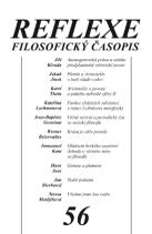Concerning Heidegger’s Notion of Being
The 1930s constitute a crucial period in the development of Martin
Heidegger’s thought. After the failure of the Being and Time project he turned his attention towards the history of being (Seinsgeschichte or Geschichte des Seins) and formulated the thought of the oblivion of being and of being-forsaken by being. The notion of Anlage sums up the temporal features of setting, perpetuity, and presence, which – according to Heidegger – are notoriously associated with the notion of being as used within metaphysics. Nonetheless, even this conceptual effort serves to take off towards a far more radical phenomenology of the world conceived as the fourfold of heaven and earth, the divine and the mortals.
Backlinks: Reflexe 37
